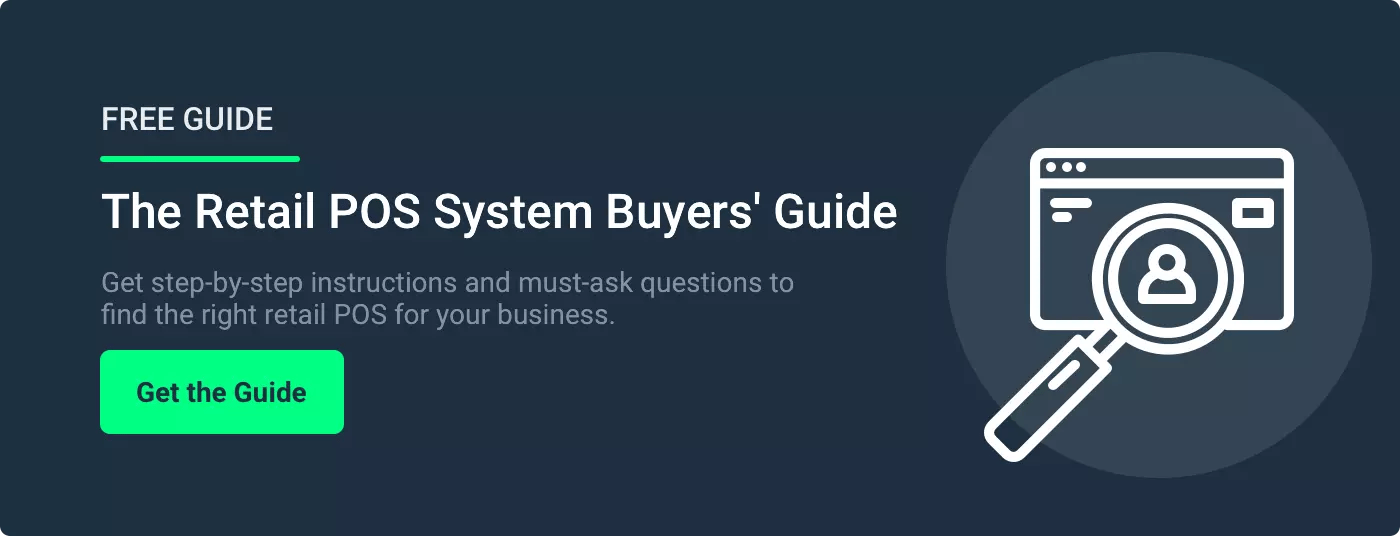No one wants to get that dreaded IRS tax notice of non-compliance.
For many small business owners, the process of tax preparation seems like a daunting task — and one fraught with pitfalls and costly mistakes. Any missed filing or seemingly minor errors can risk your entire business’ tax compliance. It’s crucial to create a bulletproof tax preparation process to avoid any missteps and subsequent penalties.
Preparing taxes for your small business doesn’t have to be a huge headache, as long as you do your research and plan accordingly. In this article, we will review crucial preparation steps you need to take to stay compliant with your federal small business taxes.
The Tax Preparation Checklist Your Small Business Needs
Getting your small business taxes in order is no small feat. We have witnessed this firsthand working with over 10,000 customers nationwide. One of the most common factors that heavily impacts tax compliance is how your payment processing and transactions are managed.
That’s why we at POS Nation consider a reliable point of sale system to be a prerequisite for tax compliance. By monitoring and organizing the revenue coming into your business, that is one less thing to worry about come tax time.
- Adopt a point of sale (POS) system that includes software to organize and maintain inventory and payment processing records
Once you have gotten your point of sale processes running smoothly, it’s crucial to follow these 23 steps of this tax preparation checklist based on IRS and US Small Business Administration (SBA) guidelines.
Determine Which Business Tax Forms You Need
Having the right business tax forms is a crucial first step in tax preparation for small business owners. In this section of the tax preparation checklist, you can review which forms apply to your business and tax structure. We recommend also checking with your local and state tax requirements to cover all your bases.
- Income Reporting Forms
Your business type dictates which tax forms you need to complete and submit. Sole proprietors and single-member LLCs file a Schedule C form, also known as a 1040 or 1040-SR, to calculate profit and loss for that tax year. If your business is registered as a corporation, you would report income, gains, losses, deductions, and credits on Form 1120 instead.
- Payroll Tax Forms
As an employer, you’re not required to submit W-4 forms, also known as Employee's Withholding Certificates, to the IRS. Although W-4 form submissions are not required, the forms are subject to review. It’s crucial to have these prepared just in case the IRS requests via mail to review your records.
- Capital Gains Reporting
When selling capital assets, it’s necessary to keep in mind your capital gains reporting and tax rates. If you’re selling a capital asset such as real estate, machinery, vehicles, and equipment, you are required to report your gains or losses as a capital gain for that tax year. Our state’s tax rate and how long you held on to the capital asset determines your capital gains tax. Whether you experience a loss or a gain, it’s required to report any capital asset sales activity and be registered on IRS Form 8949 and Schedule D Capital Gains and Losses.
- Business Real Estate Property Tax Forms
If you’re selling or exchanging business property, you’re likely required to file IRS Form 4797, in addition to the forms you need for capital gains reporting.
- Dividend Tax Reporting
Dividend tax reporting is when a corporation pays you property distributions of which you’re a stockholder. When paying tax on dividends from your business investments, your tax rate for qualified dividends is 0, 15, or 20 percent. Your tax rate will change year to year based on your taxable income and your business’ filing status. Generally, your tax bracket is a good indicator of how much dividend tax rate you are required to pay. The form you are likely required to submit for dividend tax reporting is Form 1099-DIV.
Make Sure to Include Business Deductions
Next up on our tax preparation checklist are business deductions. Business deductions are the costs associated with running your small business. These expenses may be deductible depending on the cost and type of the expenses, along with your overall business income.
Common business expenses that qualify as at least partial deductions include:
- Mileage during business operations
- Client meals
- Conference costs
- Machinery and equipment
- Inventory
- Client entertainment
- Client gifts up to $25
- Financial fees and costs
- Business software
- Office supplies
- Licenses and permits
- Advertising and marketing
- Legal advising and accounting services
- Home office expenses
Complete the Forms
Once you have found the business forms you need to fill out, the next step would be to gather your income, expenses, and deduction information and prepare the forms for filing.
Completed forms are usually:
- Prepared by a third party accountant or tax preparer that has a Preparer Tax ID Number (PTIN)
Or
- Prepared by yourself on tax software or government filing websites
Check for Errors
- Check tax documents thoroughly with a tax professional or through your tax filing software
When completing and filing tax forms by yourself, it’s crucial to have an error-checking process. Your tax preparer or your tax software can double-check the information listed and confirm the correct forms are being processed.
Without an error-checking process, you may end up with penalties and unexpected tax bills. According to the IRS, there are four costly tax errors that most business owners make. The four common tax errors include underpaying estimated taxes, not separating business from personal expenses, late filing, and depositing employment taxes late. To avoid these common mistakes, it’s essential to double-check and confirm your tax information is correct before filing or submitting payments.
Pay Estimated Taxes (and Avoid Penalties)
- Pay estimated taxes through check, cash, money order, or the online Electronic Federal Tax Payment System (EFTPS)
After your income, expenses, and other tax information has been filed, paying the applicable taxes that you have due is the best way to avoid penalties. As a small business owner, you’re likely to need Form 1040-ES, which enables you to calculate and pay your estimated taxes on a quarterly basis. This estimated tax is based on what you have earned for the quarter.
Submit the Tax Forms
- Submit tax forms before or on the postmarked day of when your taxes are due.
Filing your tax forms is the last and most important step of the tax preparation checklist. How and when you submit your tax forms will determine if you will receive any penalties or fees. The timing of your tax form submission should be before or on the postmarked day of when your taxes are due. It's also imperative to not only file federal taxes, but to include state and local taxes that may be due, especially if you live in a state with income tax.
Quarterly Tax Payment Structure for Small Business Owners
|
Payment |
For Income Earned Between |
Due Date |
|
1st Payment |
January 1 - March 31 |
April 15, 2021 |
|
2nd Payment |
April 1 - May 31 |
June 15, 2021 |
|
3rd Payment |
June 1 - August 31 |
September 15, 2021 |
|
4th Payment |
September 1 - December 31 |
January 18, 2022 |
A Smart Point of Sale System to Keep Your Small Business on Track
As a small business owner, we know you can’t leave anything up to chance. With all the hats you wear, you deserve easy solutions to your complex business challenges. When it comes to maintaining inventory and payment processing, your POS system either hinders your business’ success or seamlessly keeps business flowing while maintaining compliance.
Let’s go one step beyond reviewing your tax preparation checklist. At POS Nation, we’ve prepared a POS (Point of Sale) Buyers’ Guide that will walk you through how to choose a POS system that works with your business, along with must-ask questions to consider.








 by Brian Sullivan
by Brian Sullivan


 by Cort Ouzts
by Cort Ouzts